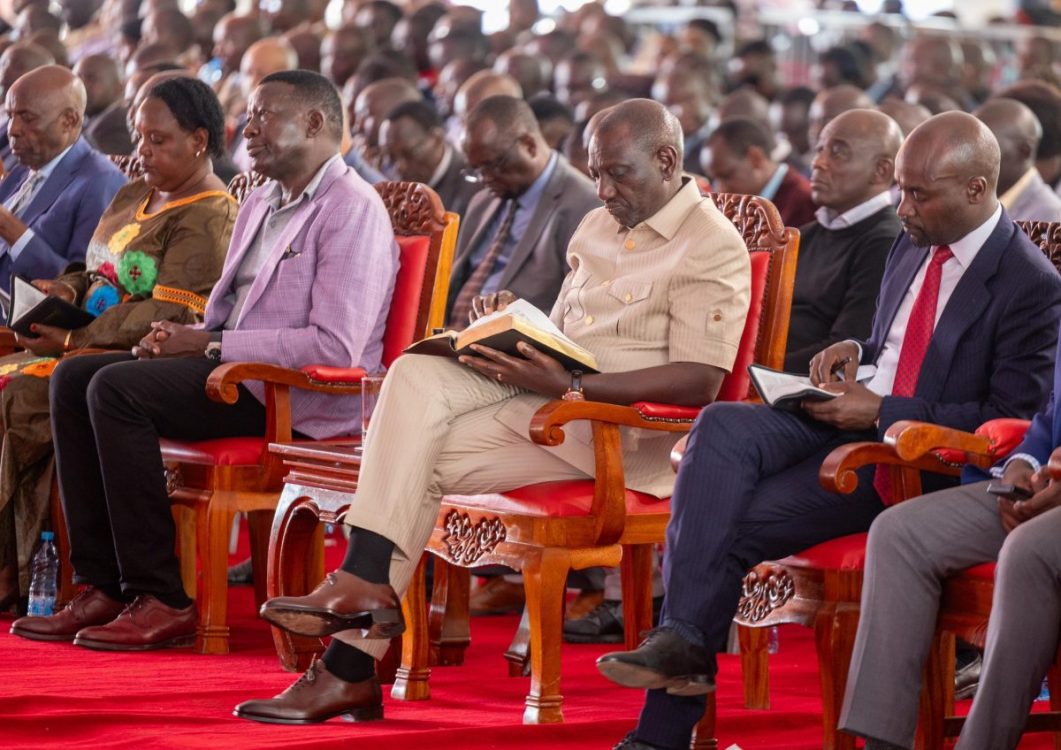Does religion have a place in learning institutions?
By Levi.Obonyo, March 8, 2024Bishop Calisto Odede comes alive on the pulpit, delivering Bible exposition. You would hardly believe that his early education did not start on the path of theology.
But like all those who have spent time at the Fellowship of Christian Unions (FOCUS) in their formative years, these men and women have had a significant impact on the life of the church.
Before him at the Christ is the Answer Ministries was Bishop David Oginde, another FOCUS alumni who now serves at the Ethics and Anti-Corruption Commission, and there are many more like them.
Speaking this week on a radio program, Bishop Odede veered off his exposition topics to address a recent debate in Parliament. The concern raised in Parliament focussed on the issue of faith-based education and whether students enrolled in such institutions should be exposed to faith-oriented scholarship.
Kenya’s famous keyboard warriors can hardly ignore a topic. They were joining the debate in no time, particularly regarding Daystar University and whether students should be required to attend chapel.
The core of the debate is the assumption that education can be neutral. Neutrality means that facts are presented without any influence on how they are presented. At the core of human formation is the development of a worldview that eventually influences how people approach life.
What people choose to do with God significantly impacts how they live their lives. If one believed that God created the world as opposed to the world simply evolving would determine how the person would treat creation.
The belief in God is at the heart of conservative interpretation of reality. It would influence our treatment of the environment, how we treat others, and our disposition to material things.
The academy has often privileged the pursuit of knowledge, truth, and logic with some emphasising reality. This is the substance of which philosophers are made. Throw in students of new age and progressives, and one has one’s hands full with a range of philosophical orientations.
In that mix, religion is viewed as old-fashioned and a hindrance to progress. Universities have particularly played a leading role in seeking to drive religion out of scholarship halls. What they still need to do is spell out what they replace religion with.
Institutions that consider themselves progressive have taken pride in not being influenced by religion, but they often fail to demonstrate convincingly why their chosen path is superior to others.
In the evolution of education in Kenya, public universities have taken pride in shuffling religion to the sides, the stuff of a compartmentalised section of the university, and the space organizations such as FOCUS or Christian Unions have taken. But these are private engagements not allowed to interfere with the pursuit of knowledge.
However, many private universities have taken the opposite direction and anchored their pursuit of scholarship on the assumptions of religion, if not the church. So today, we have at least two institutions influenced by Catholic Church doctrine, one by Presbyterian Church doctrine, another by Church of the Nazarene doctrine, and so on. On the other hand, Daystar is an open door for all denominations designed to be welcoming to Catholics and Presbyterians, Nazarenes and Orthodox alike, and other faiths.
What is the difference? Catholic-based institutions pursue knowledge and truth based on the assumption that the revealed truth is through the eyes of the Catholic Church. In contrast, a nondenominational institution like Daystar proceeds from the word of God, the church background notwithstanding. The critical difference, however, between these private church-based institutions and others is the overt statement of their beliefs.
If these private institutions were faithful to their statements, then their graduates would view reality differently. They would treat nature, the environment, and human beings differently. If they fail to be faithful to their statements, then they fail in their mission, which is at the core of why they were set up.
The voices of people like Bishop Odede need to be out there more often to help explain the difference and enable parents to make choices.
—The writer is the Dean, School of Communication, Daystar University
